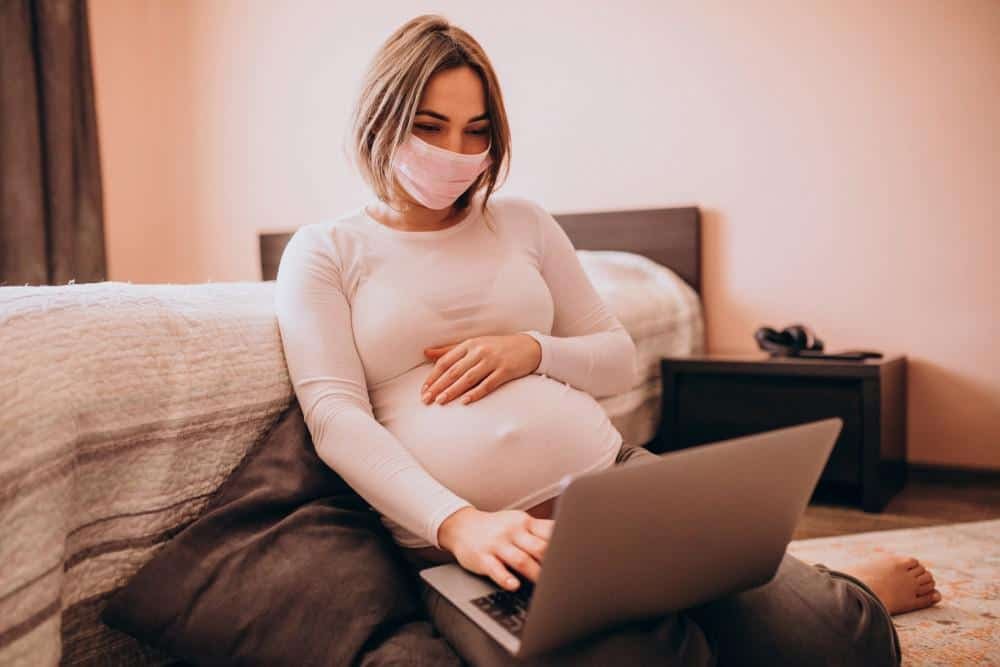OB/GYN Care and COVID-19: What You Should Know
It seems like only a couple months ago that the words pandemic and coronavirus were words completely alien to our vocabulary. Pandemics were things that happened in movies or in faraway places.
Now with the passing of each day, Americans are beginning to realize that our lives will continue to change in the foreseeable future as we learn to live with this new virus while a vaccine is being developed. Mundane chores like going to the grocery store, attending an event, or even going to work or school hold a whole host of risks of contracting and spreading COVID-19.
We’re learning that coping with changing safety protocols and uncertainty are inevitable. Bringing your life to a screeching halt, however, is not. We still need to do all the things we did before like buying food and taking care of our families, but we just need to do them differently in order to keep ourselves, our family, and our community safe.
Accessing medical care, including OB/GYN, care is just one of those important tasks we need to continue to do. But what should we know about COVID-19 and OB/GYN care?
Dr. Brandon M. Lingenfelter offers his insights on the pandemic and the obstetrics and gynecologic services available at our practice.
Mitigate the risks of getting COVID-19
As an essential business, our practice is open, and our staff continues to be steadfast to our commitment to providing superior care to women in all stages of life. Our medical and professional staff follows safety guidelines and best practices provided by the Centers for Disease Control with continued guidance from medical professional organizations like the American College of Obstetricians and Gynecologists and the American Medical Association.
We apply many of the same things you are doing at home to mitigate the transmission of COVID-19 in our practice setting. Our counters and other frequently touched surfaces in our exam and waiting rooms are deep cleaned. We wash our hands frequently, and we may make scheduling changes to minimize the number of patients in our waiting room. You may also notice additional changes in our waiting area so that our patients can practice social distancing. Rest assured that providing safe, quality care for you is our No. 1 job. If you have any questions about our protocols or what to expect when you come in for an appointment, don’t hesitate to contact us.
No known additional risks to pregnant women and newborns
Becoming a Mom can be a nerve-racking time under the best circumstances, but when you add a pandemic to the mix it seems like there’s more reason to be anxious.
Although doctors and researchers are continuously learning about the possible effects of COVID-19 for pregnant women and their babies, current thought is that pregnant women who get COVID-19 aren’t affected any differently than the general population. Although some preterm births have been reported, it’s not known whether the coronavirus had anything to do with them.
Similarly, if a pregnant woman has COVID-19, it seems unlikely that she’ll transmit the virus to her baby during delivery or through her breast milk. So the good news is that pregnant women can do the same things everyone else is doing to prevent them from getting or transmitting the virus.
So stay home as much as possible, and wear a facemask and practice social distancing if you do go out. Don’t forget to wash your hands frequently and avoid people who are sick. Remain vigilant to all prenatal recommendations like eating a healthy diet, drinking lots of water, exercising, and getting a good night’s sleep. Taking care of yourself will be a win-win for both you and your baby.
Tell your doctor if you’ve been exposed to COVID-19
If you think you’ve been exposed to the coronavirus and are running a fever, or have chills or a cough, contact us or your primary care doctor to discuss your symptoms. If your condition worsens to shortness of breath or increased pressure in your chest, call 911 or go to an emergency room.
If you have questions about the coronavirus and your OB/GYN care, book an appointment at our practice in Princeton, West Virginia. Make your appointment online or call our office today.

